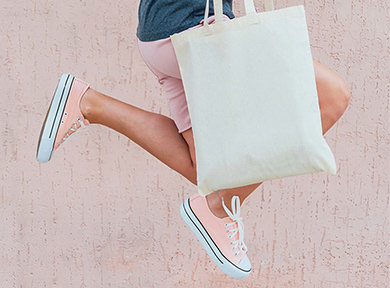With global temperatures rising and the world’s natural resources under intense pressure, radical changes are needed to the way we produce and consume products if we are to successfully manage future supply and demand.
Some of these changes may feel unpalatable to some consumers. Switching to plant-based diets, adjusting our shopping habits to reduce consumption and putting increased thought into how we buy, puts the era of convenience shopping at risk. Yet studies show there is still considerable enthusiasm for change.
65% of consumers feel that environmental impact plays a large part in their purchasing decisions, while 34% say they’ve knowingly paid more for green products.2 The recent spotlight on COP26 means these figures are likely to grow. But a gap still exists between consumer attitudes and behaviours. Barriers such as price, quality, limited choice, lack of awareness of environmental impacts or just general apathy towards sustainability, are among the key factors preventing widespread adoption of sustainable consumption.
Consumers will invariably be the main drivers behind this change. However, businesses will also play a key role in influencing and promoting more sustainable behaviours. More retailers are now recognising their responsibilities and taking conscious steps to support their customers on this journey. For example, Marks & Spencer has included “to be the world’s leading retailer on engaging and supporting customers in sustainable living” in its Plan A 2025.3
So, how can retailers use their position to drive sustainable consumption?
Five ways that retailers can play their part
Whether they realise it or not, organisations have a powerful influence over their consumers’ purchasing decisions. For retailers to support the adoption of sustainable consumption, there are different approaches they can consider.
1. Persuasive marketing
Rather than pushing promotions and sales, retailers should use their brand platform to promote sustainable lifestyles and educate their customers on the consequences of over-consumption. Using ‘sufficiency marketing’, retailers can be the advocates for less materialistic and wasteful lifestyles.
2. Education and transparency
To help customers make more informed purchasing decisions, retailers should provide greater visibility of the environmental impact of a product to help customers understand the trade-offs. ‘Effortless eco-friendliness’ is listed in Google’s top digital marketing trends and predictions for 2022,4 demonstrating the importance of incorporating sustainability benefits into consumer choices. Additionally, the Advertising Standards Authority recently announced that it will be incorporating environmental and social claims when producing advertising guidance and conducting reviews and investigations.5
3. Sustainable shopping incentives
Retailers should reward customers on their sustainable choices, looking at the products they buy, how they buy them and how they’re disposed of. Like many coffee retailers, Pret a Manger offers a 50p discount to customers using a reusable cup. This led to 10% of coffees being served in reusable cups across its UK outlets last year.6
4. Alternative shopping models
To reduce waste and over-consumption, retailers should offer new shopping models such as subscription services, sharing and rental schemes, and reuse stations. Many businesses have already adopted these models. For example, second-hand clothing retailer Depop, and Selfridges, which have introduced new circular schemes. In grocery, Tesco has recently launched a partnership with Loop, which allows buyers to borrow packaging and return it so it can be cleaned for reuse. Even home and furniture retailers are beginning to get on board, with John Lewis now offering rental furniture.
5. The theory of behavioural change
Retailers should leverage concepts such as the ‘Nudge theory’ to help influence their customers’ choices. This theory subtly leads customers to a particular choice through small actions, such as product placement or using vouchers and discounts.
As consumer demand for sustainable goods and products, more circular systems and greater transparency increases, it’s important for retailers to recognise the innovation opportunities available to support customers in their sustainability journey. Adopting sustainable practices can promote a stronger brand, build customer trust and loyalty, and improve employee retention.
The time for businesses to step up is now
There is no doubt that some retailers have increased their efforts towards championing sustainable living, however we challenge them to scrutinise their strategies and think about whether they could do more.
Among the questions to ask your business are the following:
Could you be more ambitious?
Helping consumers to shop differently is no longer enough. Real progress will only occur when retailers promote overall reduction. Could you be doing more to prevent over-consumption and help address some of society’s superfluous attitudes. Patagonia’s ‘Don’t buy this jacket’ campaign7 has set a great example. Be bold, get creative and step up to the challenge to see how you can inspire a ‘less-is-more’ mindset.
Are you leading by example?
Customers often need to see businesses demonstrate true commitment to sustainability before they themselves commit. Driving forward the sustainability agenda across your whole business and engaging with your customers on it will help create a sense of collective opportunity and make individuals feel their actions are contributing towards a bigger purpose. IKEA’s Live Lagom community8 is a great example of how to create collective responsibility.
Do you know your customers well enough to address their needs and concerns?
It’s vital to understand the motivations behind your customers’ purchasing decisions and any barriers to more sustainable shopping. Leveraging your customer data and insights will help you shape and tailor your solutions in a way that addresses their needs and helps you achieve wider uptake, whether that’s through making sustainable products more affordable, raising awareness of an item’s environmental impact or by taking an alternative approach.
Are you thinking end to end?
Opportunities to ease the transition to sustainable living exist across the end-to-end supply chain. You should be looking to drive reductions beyond Scope 1 and 2 emissions and finding ways to influence change in your Scope 3 emissions too. From sourcing decisions and how products are packaged and delivered to store, to how they’re sold and how easy you make it for consumers to dispose of them after use, it’s important to take a holistic view so that you identify all opportunities available to you.
The journey to a sustainable future continues
Collective effort and collaboration from everyone is needed to meet the ambitious net-zero goals and transition to a sustainable economy. Retailers must continue to act as enablers, allowing their customers to make sustainable choices and reduce their individual footprint.

OUR CASE STUDIES
-
Vanish
We worked with Vanish to define a higher purpose to drive behaviour change...
Read more -
Architas
Architas was looking to understand which factors of ‘Environment’, ‘Social’ and ‘Governance’ mattered most to investors across its…
Read more -
Giffgaff
Since disrupting the category as the first SIM-Only, online-only network run by its members, giffgaff has always had…
Read more
More insights
-
Closing the gap in consumer behaviour
Despite the rapid rise of sustainable options offered to consumers, businesses are witnessing a paradox in consumer decision-making...
Read more -
Sustainable shopping habits
Our latest research reveals that, while some consumers are interested in sustainability, concerns over other factors, such as…
Read more














